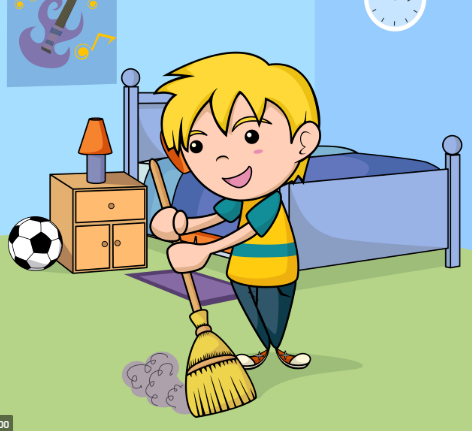Rather, they sulk, linger, and dawdle all with an end goal to maintain a strategic distance from 20 or 30 minutes of what is generally simple work.
In the event that you have an inclination that you're always bothering your children to do their family unit tasks, here are six viable advances you can take recommended by cleaning services Minneapolis.
 End the Distractions
End the Distractions On the off chance that your kid isn't doing his errands, you just end anything that is diverting him. More than likely, this implies the hardware get killed. What's more, they don't return on until the tasks are finished.
At that point converse with him about it. In any case, keep it brief. Ask him what he believes is going on and what's hindering him of doing his alloted assignments.
Discover what his arrangements are after he's done. Spur him to complete the work with the goal that he can proceed onward to what he truly needs to do.
Speaking to a youngster's personal matters—instead of clarifying the dynamic idea of obligation or obligation—is commonly significantly more compelling for kids.
Time limits are a decent method to get your kid to conform to doing errands.
The excellence of this framework is that you're not continually annoying any longer. Rather, you're simply keeping time. You can even utilize a cooking clock with an alert.
This sort of remuneration framework is constantly desirable over one in which the child loses something since it's progressively inspirational and less correctional—you're giving your youngster a motivating force to do better.
Utilize an Allowance as Leverage
In the event that guardians are monetarily ready to give kids a stipend, they ought to do it. What's more, guardians should offer the leeway attached to their children's errands.
For instance, if your kid must be advised more than once to do his errands, he would lose a specific piece of his stipend. Maybe a dollar. What's more, each time you remind him, he loses another dollar.
It is likewise proper to give that piece of his remittance to a kin who does the errand. Along these lines, you're not taking a shot at the errand, you're chipping away at the interchanges procedure, just as your youngster's inspiration.
Make a Structure for Chores
Structure is significant with regards to finishing family unit undertakings. There ought to be a set time when tasks are to be finished.
Nighttimes are generally the best time for errands during the school year in light of the fact that doing tasks toward the beginning of the day just adds to the pressure and power of getting the opportunity to class on schedule. In the late spring however, we prescribe doing tasks in the first part of the day to get them off the beaten path before the day begins.
When all is said in done, before the computer games or any gadgets go on, make it a standard that your youngster's bed must be made, his garments ought to be in the hamper, and his room is clean. This present, he's beginning to discover that before he can have extra time, his obligations must be met.
At last, the decision shouldn't be energy or errand. The decision ought to be fatigue or task. Children need to comprehend that until errands are done, they don't get the opportunity to have some good times. No hardware until tasks are done and no going out with companions until errands are finished. The option in contrast to doing their tasks should be weariness.
With this sort of structure set up, most children will in the long run decide to do their tasks and afterward continue ahead with the things that they need to do.
Try not to Use Chores as a Punishment
Try not to utilize errands as a discipline or as a result. On the off chance that someone acts mischievously and accomplishes something incorrectly, don't give them an outcome of doing the dishes, for instance. You need your kid to discover that a task is a normal duty, to be done regardless.
Utilize a Reward System
On the off chance that you need children to assume liability for their errands, incorporate their assignments with a prize framework. Put a diagram on the fridge with every kid's name on it, with their tasks recorded alongside their names. On the off chance that they cause their bed to speedily and do it right, they get a check mark. At the point when they get five check marks, they get a prize. Perhaps it's remaining up an hour later. Possibly it's having more screen time one night.
Last Thoughts
Getting your youngster to do errands turns into a fight when you enable it to develop into one. In case you're remaining over your children letting them know again and again to "void the dishwasher, cut the garden, clean the kitchen" and they're hunkering down and still not agreeing, at that point you are in a fight. Furthermore, as the parent, you have to end the fight.








